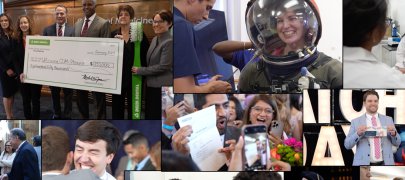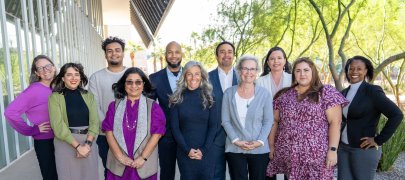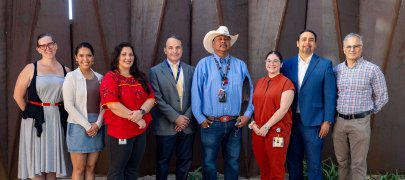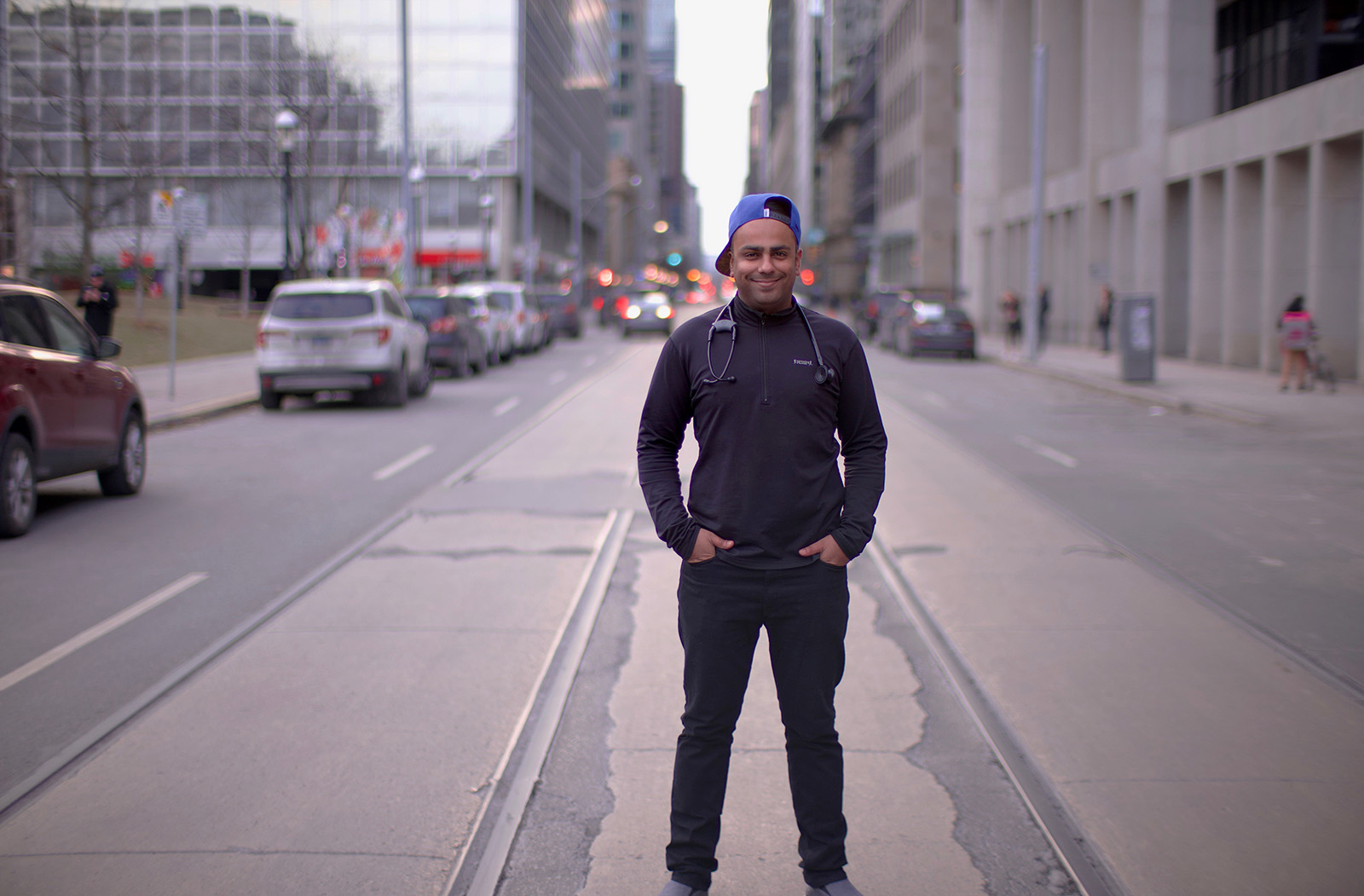
Event Explores Impact of Homelessness on Health and End of Life Care

Medical experts came together to present and discuss the impacts of homelessness on health and end of life care. The presentation, which was organized by a medical student at the University of Arizona College of Medicine – Phoenix, showed how health care has failed vulnerable populations and steps health professionals are taking to improve the care for these underserved patients.
The event, which took place on June 25, was organized by second-year medical student Alexis Bailey and was supported by the Office of Diversity and Inclusion. More than 100 individuals registered to attend the Zoom presentation.
The presentation started with a keynote discussion from Naheed Dosani, MD, a palliative care physician and health and human rights activist based in Toronto, Canada. Dr. Dosani is founder of the Palliative Education and Care for the Homeless (PEACH) program, which aims to meet the needs of homeless and vulnerably-housed patients with life-limiting illnesses.
Dr. Dosani began his keynote with a transformative experience he had while providing care to a Toronto homeless man at the end of his life, which motivated him to develop PEACH — a model of care that has inspired programs across the continent.
As a first-year resident at the University of Toronto, he was completing a rotation at a local shelter when he was asked to assess this patient, named Terry. He began the exam, looked in his mouth and could see what was causing so much distress. It was this widespread disseminated head and neck cancer. Terry was diagnosed a year before at a local cancer center, but due to his mental illness, he had difficulty organizing himself for follow-up appointments.
“He was just out in the community and experiencing progressive cancer,” Dr. Dosani said. “When he started to experience pain, he did what any one of us would do: He went hospital to hospital, ER to ER, seeking the kind of pain control that any person should have access to in this situation. I saw the notes; no matter where he went — the ER, clinics or hospitals — he was denied access for treatment that would improve his quality of life.”
Although Dr. Dosani tried to provide care, Terry died that night. “I had to actually take time off from my training and reflect. The story of Terry really stuck with me. It showed how health inequities persist in our communities. It showed the outcomes of what people experience with homelessness and really what their lives can be like. Finally, it showed that palliative care is a human rights issue that not everyone has access to, even in countries like Canada and the US.”
Dr. Dosani shared alarming statistics about individuals who are homeless. People experiencing homelessness are the sickest subpopulation across the board. Three-quarters of them have one or more chronic diseases. They are four times more likely to have cancer, five times more likely to have heart disease, and have between a 2.3 and 4x higher death rate. For example, life expectancy in Canada for people who have a home is between 77 and 82. For the homeless population, it’s between 34-47. For people experiencing homelessness, there lifespan is cut by 50 percent.
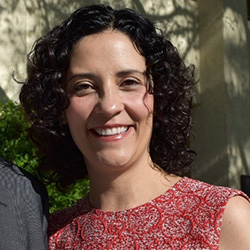
The event also included a moderated discussion led by Bailey between Melissa Sandoval, MD, chief medical officer of Circle the City, and Ned Stolzberg, MD, executive medical director of Hospice of the Valley, who talked about what is happening in Phoenix regarding hospice, palliative and respite care.
Dr. Sandoval and Dr. Stolzberg answered questions about their organizations, the partnership between these organizations, their response and change of structure during the COVID-19 pandemic, the impact of care during a pandemic, the importance of support systems and more.
“I hope people left with a deeper understanding of what impacts health, and how these factors become especially important for those who lack housing at the end of life,” Bailey said. “Everyone will die, and everyone deserves to die with dignity. The wisdom of Dr. Dosani, Dr. Sandoval, and Dr. Stolzberg made this abundantly clear and highlighted the many avenues through which we work to make this a reality in Phoenix and throughout the world.”
Bailey, who had been planning this event since April, became interested in hosting this session because of her work and involvement with hospice and palliative care. “Despite how critical this component is within medicine, I still believe it is something many people lack exposure to. When I met Dr. Dosani, I realized that I had never considered the impact of the end of life on people experiencing homelessness.”
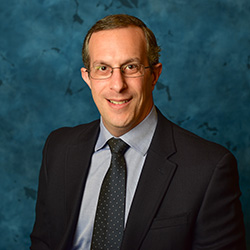
“While the event was ongoing, I was already getting messages about the event being wonderful, the speakers' enthusiasm and the content being thought-provoking,” Bailey said. “I admit that I was nervous going into this event, because I have not moderated something like this before, but just a few minutes in, and I was already captivated by Dr. Dosani’s message and subsequently even more excited to hear from our Phoenix experts. I cannot imagine it going any better.”
Topics
About the College
Founded in 2007, the University of Arizona College of Medicine – Phoenix inspires and trains exemplary physicians, scientists and leaders to optimize health and health care in Arizona and beyond. By cultivating collaborative research locally and globally, the college accelerates discovery in a number of critical areas — including cancer, stroke, traumatic brain injury and cardiovascular disease. Championed as a student-centric campus, the college has graduated more than 900 physicians, all of whom received exceptional training from nine clinical partners and more than 2,700 diverse faculty members. As the anchor to the Phoenix Bioscience Core, which is projected to have an economic impact of $3.1 billion by 2025, the college prides itself on engaging with the community, fostering education, inclusion, access and advocacy.
